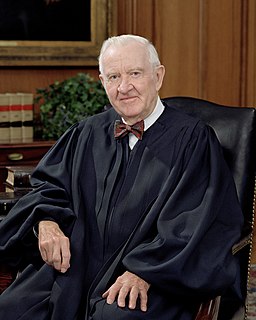A Quote by Ted Cruz
The Court is making the preposterous assumption that the People of the United States somehow silently redefined marriage in 1868 when they ratified the 14th Amendment.
Quote Topics
Related Quotes
We have not ratified The Convention on the Elimination of all forms of Discrimination Among Women. I think 194 countries have signed onto it, but the United States has not. And CEDAW to the United Nations is what the Equal Rights Amendment or the women's equality amendment is to the United States. I think we should pass the women's equality amendment and a lot of these other fights would go away.
The Thirteenth Amendment to the Constitution of the United States was enacted in 1865 by martial law. The Fourteenth Amendment was enacted in 1868 by martial law. The Fifteenth Amendment was enacted in 1870 by martial law. Military occupation of the Southern states did not end until 1877, twelve years after the end of the Civil War.
The United States is in a time of transition. Courts have redefined marriage, and beliefs about human sexuality are changing. Will the right to dissent be protected? Will the right of Americans to speak and act in accord with what the United States had always believed about marriage - that it's a union of husband and wife - be tolerated?
The time has come in our society when I see great wisdom and purpose in a United States Constitutional amendment declaring that marriage is between a man and a woman. There is nothing in that proposed amendment that requires a criminal prosecution or that directs the attorneys general to go out and round people up, but it declares a principle and it also creates a defensive barrier against those who would alter that traditional definition of marriage.
When I joined the Supreme Court in 1975, both state and federal judges accepted the Court's unanimous decision in United States v. Miller as having established that the Second Amendment's protection of the right to bear arms was possessed only by members of the militia and applied only to weapons used by the militia.


































